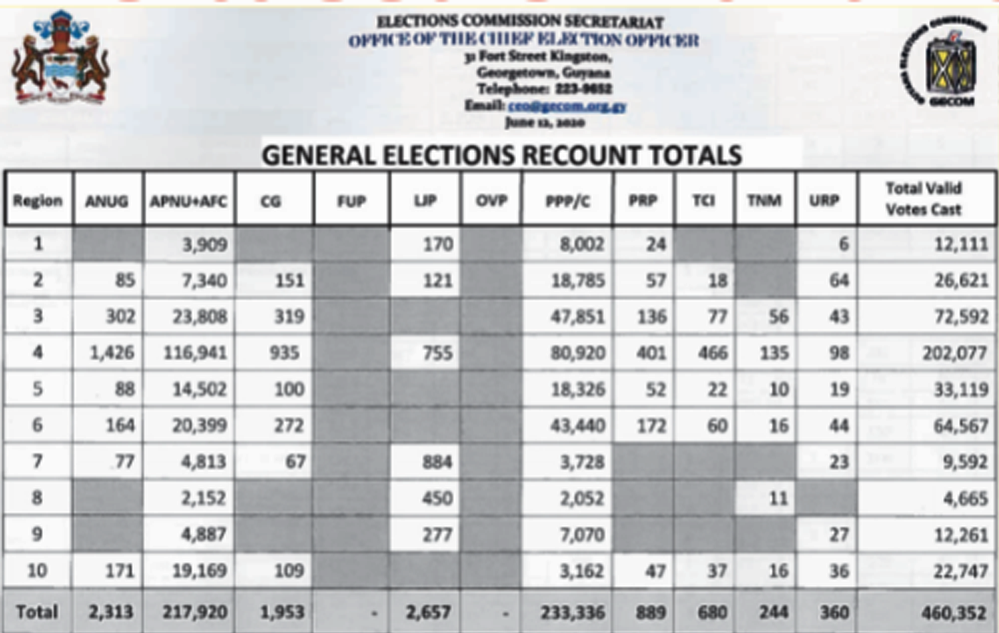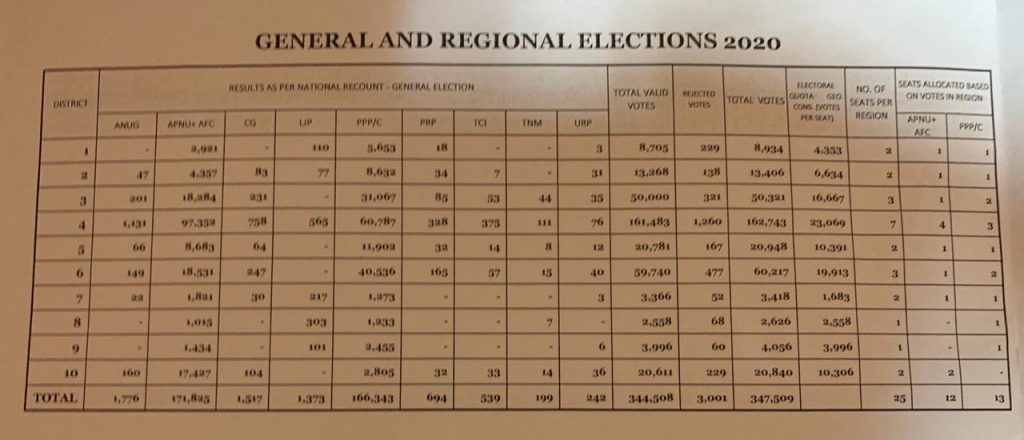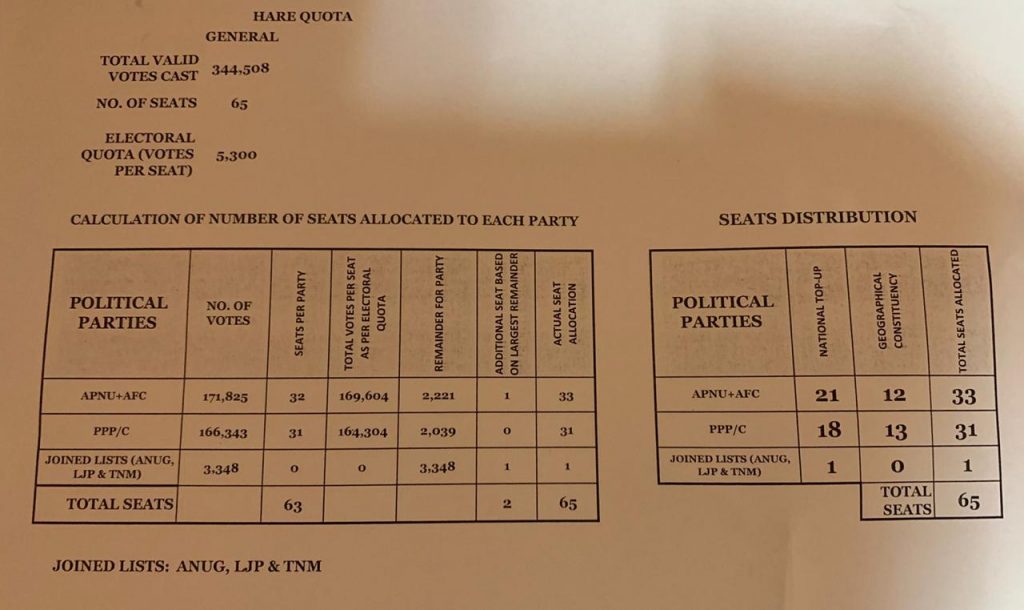The Chief Elections Officer Keith Lowenfield on Friday last declared that he is not bound by what the Guyana Elections Commission (GECOM) tells him to do once he carries out the duties he is required to under law; but Lowenfield had previously made it clear that he must be directed by the Commission, and that he, “as a student of management” knows what is required.
At a press conference held at GECOM Headquarters on February 8, 2019, Lowenfield had noted that the Constitution dictates that GECOM is responsible for the conduct of all elections and “the Commission by order instructs the Chief Elections Officer” for the conduct of the elections.
“They are contained in the Constitution [of Guyana] where the Commission shall direct the Secretariat to so do,” he said at the press conference to update on the preparations for elections.
He added: “So, it’s not a creation of an attitude on the part of the CEO that he will have to provide with guidance – the Constitution says – in writing.
“…that sees the Chief Elections Officer (acting) at the directions of the Commission – the commission which membership is contained in the Constitution.
“So they direct, ‘move, don’t move. Act, don’t act’ as is contained in the Constitution.
“So sometimes when one hears that the CEO cannot meet with a team at location x or y, I have not yet, as constitutionally mandated, been provided with the guidance from the Commission -chairman and commissioners.
“So, I think we need to understand that from jump street.”
At the press conference, Lowenfield further said: “One needs to understand context here. The Secretariat doing what they have to do because, yours truly (Lowenfield) being a student of management understands fundamentally what is required”
Last Friday, in defence of an elections report he prepared that was out of line with the clear directions he received, in writing, from the Chair of GECOM, Lowenfield changed course from his own words that he acts only under the direction of GECOM.
“While the Commission makes certain policy decisions and provides guidance to the Chief Election Officer for implementation by the Secretariat, I have to execute my duties as a Constitutional Officer, particularly in the conduct of Elections,” Lowenfield said in a statement.
Lowenfield’s statement follows that of the Coalition APNU+AFC, the party he produced figures to allow a victory.
The Chief Elections Officer is not a constitutional position, but rather a statutory one.
Lowenfield’s June 23 elections results report was scandalous and a betrayal of the instructions he had received from the Chair of the Elections Commission.
The Representation of the People Act at Section 96 requires the Chief Election Officer (CEO) to ascertain the valid votes cast in an election.
To do so, what the law prescribes for Lowenfield to do is to collect the reports of the vote counts from the ten electoral districts, add them up and then produce a report that determines the amount of Parliamentary and Regional Democratic seats the respective parties would be entitled to.
Further, the Elections Law (Amendment) Act of 2000 states that “the Chief Election Officer and the Commissioner of Registration shall notwithstanding anything in any written law be subject to the direction and control of the Commission.”
Lowenfield was instructed to prepare a report based on the results of the national vote recount, which showed the PPP beat APNU+AFC by 15, 416 votes.

But Lowenfield’s June 23 report dumped 115,000 votes and handed a win to APNU+AFC a win with 33 seats in the 65-seat National Assembly. To this date, no one knows how he arrived at his new figures.

The winner of the elections, as confirmed in the recount, is the PPP and Irfaan Ali should be declared and sworn in as President. But Lowenfield’s report aims to do otherwise and to have David Granter sworn in for a second term.
The recount showed that there were 460, 352 valid votes with the PPP securing a majority of 233, 336 votes. That would make for 33 seats in the National Assembly.
The Coalition APNU+AFC received 217, 920 votes and gained 31 seats.
Together the parties ANUG, LJP and TCM received 5, 214 votes and would get the other seat to complete the 65-seat National Assembly.
But Lowenfield’s June 23 report reduced the total votes cast to 344, 508, slashing 115, 844 votes with no explanation.
From the new figure he conjured up, Lowenfield assigned the Coalition 171, 825 votes and 33 seats in the National Assembly. He gave the PPP 166, 343 and 31 seats in the National Assembly. For ANUG, LJP and TCM he slashed their votes also, giving them 5, 214 votes but maintaining their one seat in the legislature.

Despite failing to act as directed by the GECOM chair to present a report based on the results of the recount, Lowenfield denied that he could be cited for insubordination.
“At all times, I have acted in conformity with the laws and therefore my action cannot be ‘seen as a clear act of insubordination’,” Lowenfield stated, calling the Stabroek News editorial ill-informed.













The GECOM workers and supervisors did the qualitative assessment of each vote both on the count and recount. It was then for the CEO to tabulate the returns from each region, and add them up cumulatively in a report for GECOM with his allocation of seats based on those numbers. Any further qualitative assessment is for the High Court and not the Chief Elections Officer whose functions are purely administrative and not quasi-judicial.
Lowenthal is wrong and for the damage he has done should be summarily dismissed.